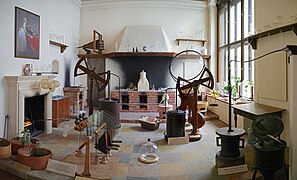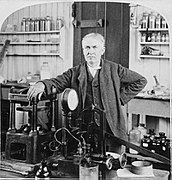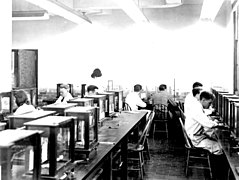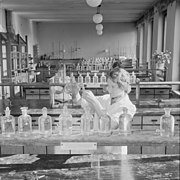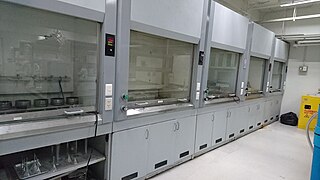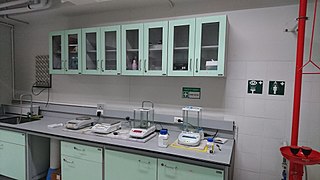
Laboratory
A laboratory (UK: /ləˈbɒrətəri/; US: /ˈlæbrətɔːri/; colloquially lab) is a facility that provides controlled conditions in which scientific or technological research, experiments, and measurement may be performed. Laboratories are found in a variety of settings such as schools, universities, privately owned research institutions, corporate research and testing facilities, government regulatory and forensic investigation centers, physicians' offices, clinics, hospitals, regional and national referral centers, and even occasionally personal residences.[1]
Techniques[edit]
Laboratory techniques are the set of procedures used on natural sciences such as chemistry, biology, physics to conduct an experiment; while some of them involve the use of complex laboratory equipment from laboratory glassware to electrical devices, and others require more specific or expensive supplies.
The title of laboratory is also used for certain other facilities where the processes or equipment used are similar to those in scientific laboratories. These notably include:
